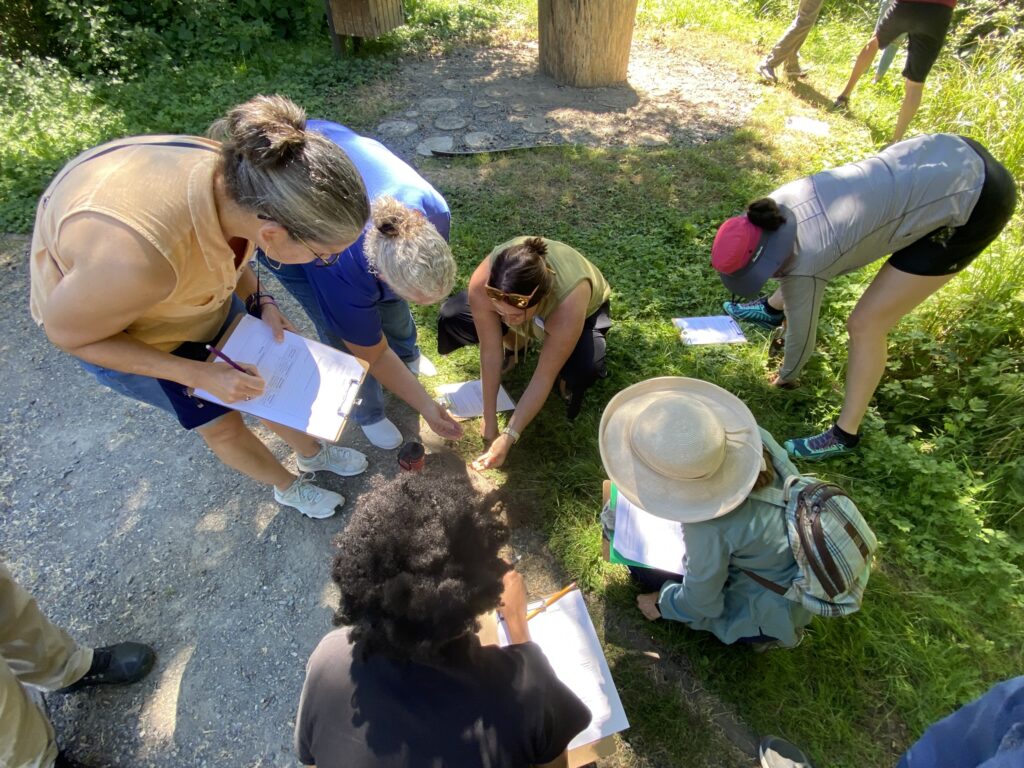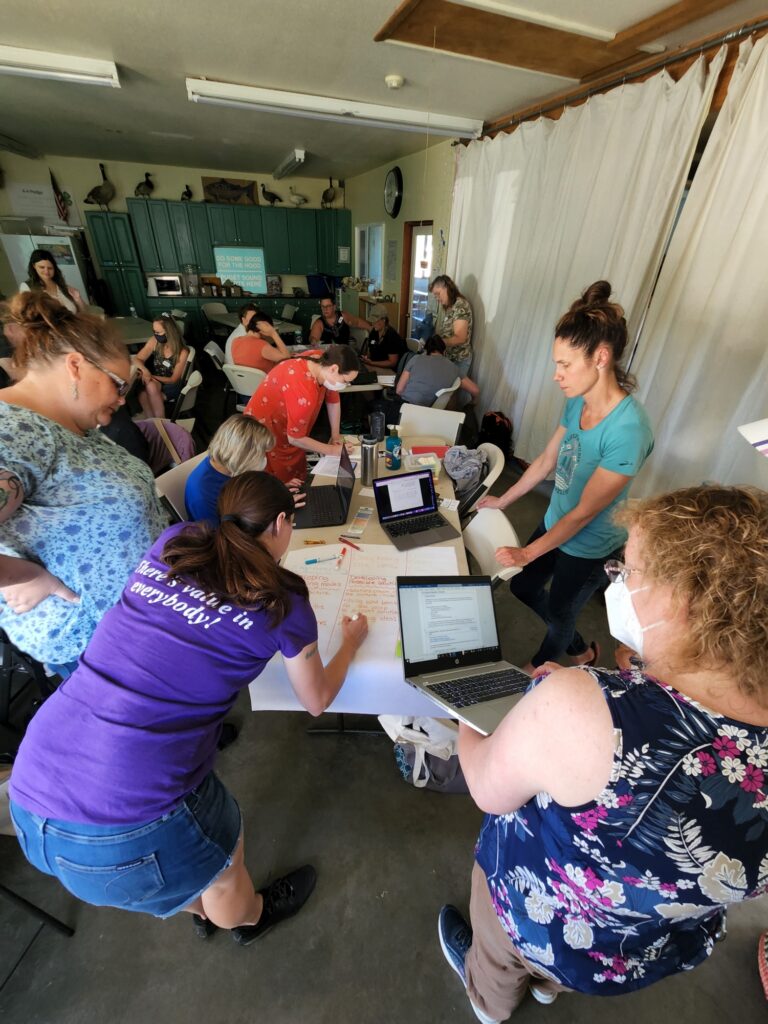Look at any PEI Climate Science workshop in the past two and a half years and the odds are good that Michelle Bretherton was there. The Rochester School District TK-2 STEM Specialist has participated in six since January 2020 in addition to three FieldSTEM workshops. What keeps her coming back is seeing how the tools and resources she gains impact her students.
“What I love most about PEI is the focus on getting kids outside and developing a sense of place,” says Bretherton. “Engagement is always high and they’re better able to make connections with the material we work on indoors when they have firsthand experience outdoors.”
Since August, PEI conducted four Climate Science workshops on Solar Energy, Coastal Hazards, Urban Forestry, Wildfire Management, Food Waste (a

and Nisqually Tribal history.
Spanish dual-language workshop for multilingual educators) and Coastal Wetlands. The workshops introduce Solutions Oriented Learning Storylines (SOLS), a framework for exploring climate change through local ecosystems, making the topic immediately relevant for students of all ages. As the name implies, the focus is on solutions for addressing and mitigating impact.
The approach engages students of all ages, especially those who are less suited to indoor learning. Bretherton had one student who typically struggled with staying focused, yet, “when we were able to experience learning physically, he was able to tell me all about photosynthesis and the life cycle of trees,” she says.
One of the tools she’s found most valuable is ‘sit spots,’ locations in nature where students use their senses to observe, document, wonder and make connections. Last school year she had 500 TK-2 students adopt a Douglas fir tree nicknamed – you guessed it — ‘Dougie’ and observe seasonal changes over from their sit spots. “Dougie did a great job of showing change over time with brilliant new growth in the spring and cones to study right off the ground all year long,” says Bretherton. “When I showed a PowerPoint with the different types of trees from all over the world, the classes were so engaged, and they couldn’t stop talking about what they thought was going on in the photographs. It was a great introduction to the Urban Forestry SOLS.”
Climate workshops and SOLS have a strong emphasis on Indigenous perspectives and experiences. Often a speaker from a Tribe within the region will serve as a presenter or host a portion of the workshop on Tribal land. Nearly all participants report that the workshops leave them better prepared to use instructional practices that make learning experiences more inclusive for Native American students. “[I plan to] use Indigenous perspectives in climate learning,” reported one recent participant in the Solar Climate Science workshop. “This can be easily tied into 7th-grade Washington State History and my Population and Ecosystems science unit.”
PEI will be holding one more Climate Science workshop on Coastal Hazards to finish the year on November 5th. To learn more about our Climate Science resources and access SOLS in English and Spanish, visit our Solutions Oriented Storylines page.
